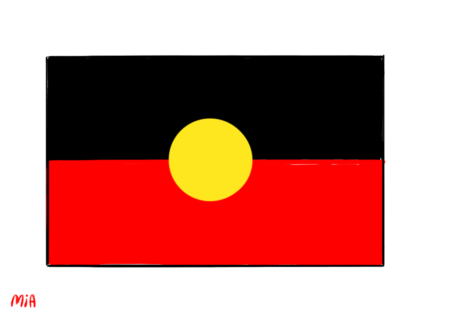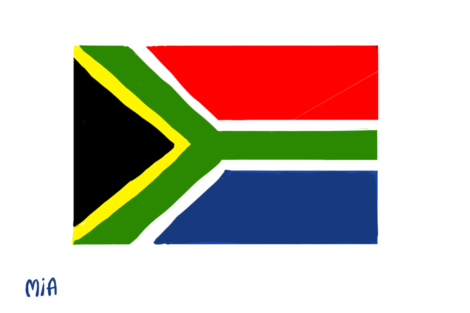July 1 marked 150 years since Canada’s confederation. This summer series focuses on events that explore this milestone while pondering the question: how did we get here?
Note on terminology: The term ‘Indigenous’ is used to refer to the First Nations, Métis, and Inuit peoples of Canada, and it is also used when collectively referring to the Indigenous peoples of multiple jurisdictions, in accordance with the protocol within international law. According to the Australian Human Rights Commission, the term ‘Aboriginal and Torres Strait Islanders’ is the preferred term for Australia’s First Peoples; the term ‘Aboriginal’ is used periodically in this piece when referring to people within certain Australian states and territories. The term ‘Coloured’ is used to refer to South Africa’s mixed-race people.
I experienced my first Australian winter during summer break this year. In mid-May, I crossed hemispheres and travelled over 18,000 kilometres to the University of Western Australia in Perth to research barriers to driver’s licensing and their contribution to the over-incarceration of Aboriginal communities in Western Australia.
I am one of dozens of students at the University of Toronto who were sponsored by the Queen Elizabeth II Diamond Jubilee Scholarship (QE II), a fund based in Canada that facilitates research, employment, and volunteer opportunities for students in Commonwealth countries. QE II scholars complete 90-day placements at universities, companies, and non-profit organizations located outside their countries of origin in the interest of promoting international scholarship and strengthening ties between thinkers and organizations across the Commonwealth.
This summer, Australia commemorated the 25th anniversary of Mabo v. Queensland, a High Court decision that finally recognized native title in Australia, as well as the 50th anniversary of the 1967 Referendum, which added meaningful recognition of Aboriginal and Torres Strait Islander peoples to the constitution for the first time. Meanwhile, discussions about Canada 150, “appropriation prizes,” and the bureaucratic problems with the Inquiry into Missing and Murdered Indigenous Women and Girls have brought much-needed attention to struggles for reconciliation and justice between Indigenous peoples, the government, and the rest of the public — struggles that have been ongoing for centuries.
My experience with QE II and the events of the past few months raise questions about how Commonwealth countries can most effectively confront and address continued colonial injustices. In a context where Canada and other Commonwealth nations are necessarily connected by their shared histories, developments like QE II offer glimpses of progress.

MIA CARNEVALE/THE VARSITY
Different settings, shared injustices
The impacts of the British colonial regime are well-documented, far-reaching, and impossible to contain within the scope of a short article. For context, brief insights pertaining to the countries featured in this article are provided below.
In Canada and Australia, the international legal principle of terra nullius — Latin for “nobody’s land” — perpetuated the fundamentally erroneous logic that Indigenous land belonged to no one and was therefore ripe for the taking. The idea contributed to denials of Indigenous sovereignty and was used to justify robbery from the communities that occupied the lands. It was a commonly-held belief that Indigenous peoples were inferior to white settlers and were therefore unworthy of equal rights or respect, and active efforts were made in both Canada and Australia to eradicate their cultures and languages.
In South Africa, imperialism manifested itself through white supremacy, exploitation, and violence. South African apartheid — a system of segregation established in 1948 and only abolished in 1994 — separated white people from Black and Coloured people. Whites were offered the best living conditions, education, and employment opportunities, while Black and Coloured people were forcibly removed from their homes and made to work and live in substandard and inhumane conditions.
It should be noted that, while each region within the Commonwealth has its own rich history, the parallels of their colonial experiences traverse geographic context. Fuelled by greed and racism, oppressive and violent settler-colonial regimes have been directly connected to social marginalization, physical and mental health problems, and the breakdown of family, community, and cultural ties within Indigenous communities.
Many QE II placements were developed with the acknowledgment that the effects of colonialism continue to be felt around the world, indiscriminate of jurisdiction.
QE II scholars Alejandra Bellatin and Gina Kwon are both research assistants at the Centre for Aboriginal Economic Policy Research at the Australian National University in Canberra. Bellatin’s work is focused on urban Aboriginal development and the role of community-based enterprises, while Kwon assists her supervisor in researching mining issues in Borroloola, a region in the Northern Territory of Australia. Like myself, both Bellatin and Kwon work under the “Establishing Right Relations” stream of QE II.
“One could argue that Australia is decades behind Canada in their Indigenous affairs,” Kwon says. She alludes to the fact that while Mabo v. Queensland did not come until 1992, native title was solidified in Canada 10 years prior in section 35 of the Constitution Act, 1982, after previous mentions in the case law. To this day, Aboriginal and Torres Strait Islander land claims in Australia are based on the common-law doctrine established in Mabo v. Queensland and do not have the same constitutional weight as they do in Canada.
Moreover, since the 1999 Supreme Court of Canada decision of R. v. Gladue, Canadian courts have been required to prioritize sentencing options other than imprisonment for Indigenous offenders, in acknowledgment of the connection between colonialism and over-incarceration. The Canadian approach in this regard is often perceived positively, and there have been discussions about the applicability of this principle to the Australian context, though the High Court rejected the proposition in 2013.
At the same time, the legacy of family disintegration and cultural genocide perpetrated by the Canadian residential school system continues to resonate within Indigenous communities across the country. Disturbingly, the apartheid system in South Africa was based on the Canadian Indian Act, a piece of legislation passed in 1876 to govern Indigenous affairs, still in force today. R. v. Gladue has also not worked miracles: the overincarceration of Indigenous peoples has persisted, and Indigenous women in particular represent the fastest-growing prison population in Canada.
These comparisons are in no way intended to mitigate the effects of colonialism on the Indigenous populations of either country. Yet, given the shared darkness within their histories, collective acknowledgment and comparative analysis is an exercise worth pursuing.
Learning beyond borders
Facilitating information exchange networks across the Commonwealth is one way that institutions around the world have attempted to confront their pasts. By investing in this process of reciprocal learning, QE II offers its participants such opportunity.
QE II scholar Zoë David-Delves interned at Code for Cape Town, a South African non-profit that aims to provide Black and Coloured high school girls with education in computer programming and professional development. David-Delves’ duties at Code for Cape Town included undertaking communications and operations work and filing grant applications; she also organized a two-week module to help grade eleven girls learn front end web development during their winter vacations.
“The reason that Code for Cape Town targets specifically Black and Coloured girls is because… there is a systemic bias against women in the fields of STEM,” David-Delves says, attributing the predominance of white men within the technology industry in South Africa to the effects of apartheid. “This is even made evident in the confidence levels of the girls who take part of the program. Though the girls are provided a top-notch education in a range of tech-related skills and were are all exceptional students, [they tended] to report a lack of competence in whatever skill they were learning.”
David-Delves believes that QE II benefits all parties involved. While scholars can make first-hand comparisons to the way colonialism has manifested around the world, receiving institutions can also grow from the insights offered by their interns — who, having grown up in different cultural and educational contexts within the Commonwealth, can bring fresh perspectives to the table.
The experiential nature of the program also encourages students to consider the real-world impact of what they would otherwise learn from the pages of a textbook. The ability to go abroad and potentially engage with local community members is particularly valuable given that North American educational institutions, including U of T, have been criticized for being biased toward the white and Western context in their teachings.
Speaking to her own research experience, Kwon explains: “Coming from a Western Commonwealth country, you are [acclimatized] to the old rhetoric: economic development is justified by the utilitarian notion of development or supported by cost-benefit analysis. My QE II experience challenged this discourse, focusing on a humanist argument to development.”
At the same time, it is also crucial that QE II scholars acknowledge their own positions in relation to the work they are conducting — many scholars are treading unfamiliar territory as foreign students, and they are not of Indigenous descent. As many people who work in social justice can attest, there is a delicate balance between offering your insights and overstaying your welcome. Establishing a responsible rapport between scholars, host institutions, and community members is crucial to ensuring the work is meaningful.

MIA CARNEVALE/THE VARSITY
A collective responsibility
Ultimately, the goal of initiatives like QE II should be to facilitate progress while remaining sensitive to the needs and insights of the communities most affected by colonialism. It is important for Commonwealth countries to continue to invest in such initiatives, creating opportunities for collective learning that will inform future developments in social change. These experiences are beneficial, so long as they are conducted in an ethical and respectful way and involve the consent and input of the community members with whom they engage.
A broader, more substantial obligation lies in the hands of Commonwealth governments to ensure that the shared ties are used to advance positive change. “Commonwealth countries have a responsibility to use their connection to break down colonial institutions and norms, rather than perpetuating them,” Bellatin says.
What this might look like is dependent on context. In line with insights from her own research, Bellatin believes that Indigenous corporations in both Canada and Australia should be supported in sharing their stories of success and growth. Kwon states that any benefits associated with development taking place on Indigenous lands must be pursued in a way that is equitable, transparent, and respectful toward the people to whom the land belongs. In accordance with the UN Declaration on the Rights of Indigenous Peoples, ensuring that Indigenous peoples are given every opportunity to participate in these decisions should be a top priority.
Engaging in meaningful social justice work also means giving a voice to the communities that are most impacted by the outcomes. While David-Delves believes Code for Cape Town has done many significant things for Black and Coloured young women, one shortcoming is that the core staff of the organization is entirely white and have been throughout the non-profit’s three-year lifespan. She identifies this division as a clear result of racial segregation and suggests that it poses an obstacle to the organization’s ability to understand the needs of the communities it serves.
Speaking from my own experience, being a QE II scholar is a privilege. With it comes a responsibility to learn as much as you can on the job — and upon your return home, to do all in your power to ensure that the insight you gain reaches the right ears.
“I have learned that it is important to point out inequities… to the people who have the power to change it,” David-Delves says. In this vein, she cites a famous quote from American civil rights activist Audre Lorde: “Your silence will not protect you.”


